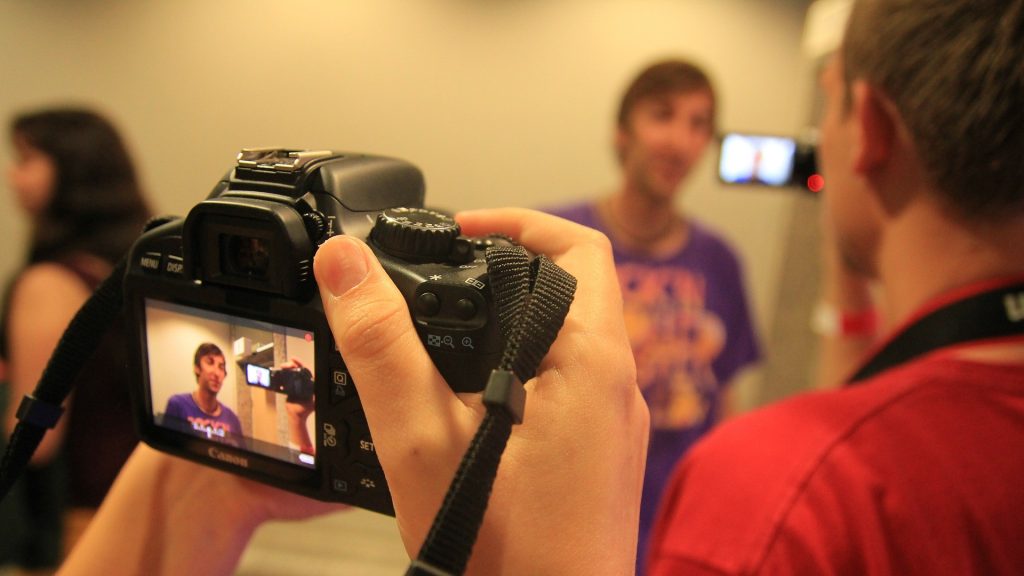
9 Tips to Create Cost Effective Training Video
Summarize this blog with your favorite AI:
They say pictures speak louder than words. Corporate organizations understand this well and are hence trying to incorporate pictures and videos as part of their learning and development programs. Videos are moving images, and somehow it keeps us engaged and connected, which is precisely what training programs require. Enterprises invest huge sums in developing training programs, although it wouldn’t hurt them to have some training material at a smaller cost. Videos are one of the most cost-effective training solutions.
Creating a highly professional training video requires time and money. So, it’s imperative to get it right. All the information that you want to present and communicate must be well planned, because unlike online training content, which can be edited and updated, a training video cannot be updated whenever you want. It will most probably have to be remade, which is again not a very practical option.
One must also keep in mind the constant technological changes. Spending huge amount of money on something that might not be relevant in a few months is a waste of time, effort and money. So before creating a training video, enterprises must consider how often is the workflow process likely to change. You wouldn’t want to create a video with a professional crew and actors, only to find that a few months down the line you have to create a new one.
Here are some tips for you to start making a cost-effective training video for your employees:
Draft an Interesting Script
Gather all your SMEs to give inputs on the technical part of the training. Then look around for someone who can give creative inputs. Finding people in your organization who can do these jobs will also give you an insight on the different skill-sets that they have. A training video must not sound like a dull presentation. Try to make it interesting with a little bit of humor. A script must ideally follow a seamless order, where concepts are introduced and explained interestingly.
Select a Video Type
Do you prefer a talking head, where you see someone constantly talking and explaining stuff on screen? Or would you rather prefer a screen capture video, where it’s only the other person’s computer screen that you see along with audio? There are a lot of free software tools which you can use to create a screen capture video. Or do you like a live-action video, like a proper staged scene? Determining the kind of video that you want to make will help you decide the rest of the steps required to create an effective training video for your learners.
Find a Good Speaker
Find that someone in your organization who is articulate and can hold the audience’s attention. Nobody wants to see a person simply droning on about a topic. The speaker must engage with the learners. They must also be good at voice modulations, because a monotonous speech could distract the learners from the training content. If you are opting for a talking head video, ensure that the speaker is well dressed. And also decide what background you want to display behind the speaker. Whether it’s an indoor shoot or an outdoor one, make sure the background is not very cluttered or untidy.
Insert Animations and Graphics
You could either hire someone to create animated graphics for you, or you could opt for one of those readymade templates which are available online. Using animations are in a way more effective than using only a talking head. Animations are engaging, fun and entertaining. Incorporating 3D visuals and animations make the training video more immersive. Whether it’s the complex workings of machines or soft skills, animations make it easy to grasp and remember.
Videos are considered more effective than instructor-led classroom training because the combination of audio and visuals help us remember the content for a longer time. And it is essential that the visuals match with the audio content. If you decide to use pictures in your video, ensure that they are of high resolution and are not blurry or pixelated. You could either use stock images or ask somebody to click good quality images. Although it would be better if you use moving clips unless you want to show some stats and graphs.
Use a Decent Camera
Shooting a video requires a certain level of experience if not expertise. Not everyone understands what shutter speed is, and which angles to shoot from. You need not buy a movie quality video recorder. But a decent enough camcorder or DSLR should be used to create your training video. Refrain from using your smartphone cameras to shoot videos, they just don’t look professional enough.
Use a Tripod
Another important thing to bear in mind while shooting is- always use a tripod. This isn’t your home video or a vacation video for your family. Your employees would be watching this, and it will be used and reused for every employee training for years to come. A tripod isn’t that expensive either. It will ensure that you record a steady video. You cannot have a shaky, grainy video as part of your training material. If not a tripod, then ensure you keep the recorder on a stable surface.
Find the Right Light
You don’t need studio lights. Nature has given you approximately 12 hours of bright light, use it well. Although try to avoid shooting when it’s too sunny. It casts unwanted shadow on and around the subject. And also, if you are using a talking head, you do not want your speaker sweating on screen. If you are shooting indoors, use reflectors and try to get as much natural light as possible inside the shooting area.
Use a Good Mic
A good microphone will give you better audio quality. A well-shot video with poor sound quality is not very effective. The mic on the camcorder or the video recorder is usually no good if you are making a professional video. Invest in a lapel microphone, or a hand-held mic, or perhaps those external microphones which can be attached to the video recorder. You can choose one depending on your budget and requirement. Also make sure that while you are recording, there’s minimum background noise. Excessive background noise tends to distract the listener.
Post-Production and Editing
Never ignore post-production work. Once your video has been recorded, make sure you edit it well. Edit the transitions, screen changes, placement of the close-ups and long shots etc. There are a lot of video editing software which will help you with all the basic editing.
There are certain things that even best editors can’t rectify, like excessive background noise, smudged lens, shaky video, grainy images etc. So, make sure you follow all the previous tips to record a good quality training video. The tripod, good camera, lighting are all required if you intend to create a talking head video. For a screen capture or animated video, you would only require a software/template, a speaker and a mic.
In Conclusion
Companies invest heavily in training. Just making a video is not enough, making a good video is important. As long as the content is interesting and keeps the learner engaged, the training video can exceed well over 10-15 minutes. A corporate training video is made with a purpose. The purpose is to impart knowledge, and keeping that in mind, one must design a video to covey the knowledge to the learner in the best possible way. At the same time, also try to keep the learners engaged by making it interactive. One could incorporate quizzes in between or after the video to assess their knowledge retention. Training videos are an effective way to increase knowledge retention and keep the learners interested in the training program. A good quality video will be appreciated by your employees because they are quick, easy to understand and memorable. A structured and well-produced video will go a long way in improving your employees’ knowledge and productivity.
Want to save this article for further reference?
Download this simple Guide on How To Create Great Video Training Content
Discover how a mobile-first training platform can help your organization.
KITABOO is a cloud-based platform to create, deliver & track mobile-first interactive training content.


